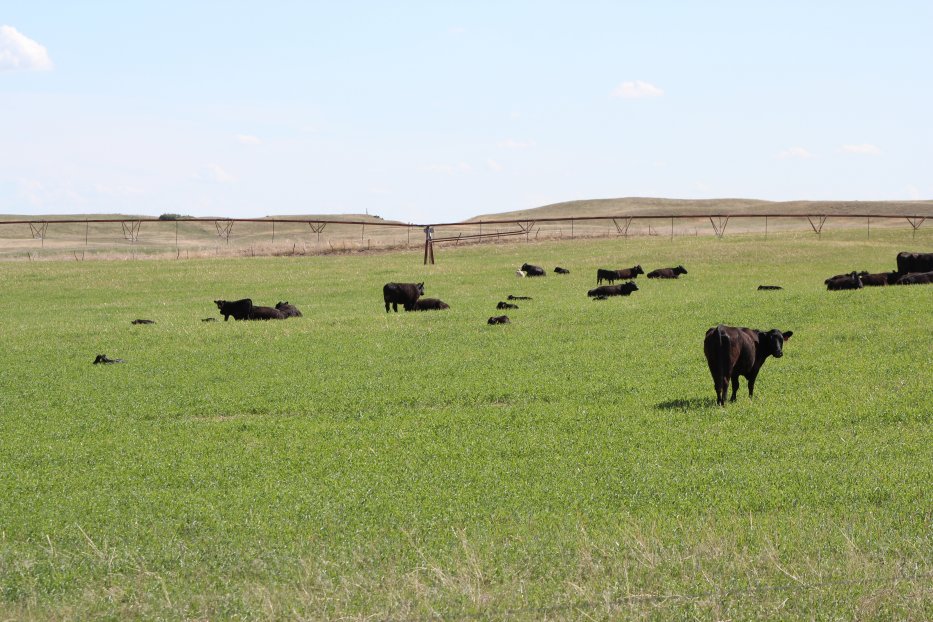
By Bruce Anderson, Nebraska Extension Forage Specialist
Many folks are planting irrigated pastures this spring. While it might be your best crop choice, don’t expect miracles.
Many farm advisors, including myself, suggest you consider planting irrigated pasture due to poor crop prices compared to cattle and forage needs. But sometimes, in our enthusiasm, we cause you to expect too much. So let’s try to set the record straight.
Irrigated pasture takes more management skill and dedication and work than other crops. Growing the crop is easy. But timing harvest or irrigation, and grazing properly to get the most out of pasture takes knowledge, experience, and a little luck. These decisions are made almost daily. So don’t expect to relax just because your grass has water. Even with water, many plants won’t grow much when it gets too hot.
If you are starting out using annual forages like oats, sudan grass, and millet, be sure you have some backup feed. On paper, it looks great to stagger plantings so grazing is available all season long. But what happens if cool weather slows growth or rain delays planting a new section or hail wipes out a month’s worth of feed? Or what if you simply try to graze too many animals for your pasture?
With perennial grasses and legumes, you must be patient. It can take two or three years before maximum production levels are reached. And that assumes you don’t limit plant root development by grazing too much, too soon. And speaking of legumes – they won’t replace all your nitrogen needs unless you have over 70 percent legume in your pasture, which then could lead to bloat problems. So plan to fertilize.
Irrigated pastures are a wonderful resource. But they aren’t magic. The weather, your soils, and you make them work.
To listen to BeefWatch podcasts go to: https://itunes.apple.com/us/podcast/unl-beefwatch/id964198047 or paste http://feeds.feedburner.com/unlbeefwatch into your podcast app.